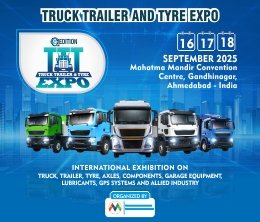Prominent Companies in Africa Semi-Autonomous and Autonomous Bus Market with Size | Manufacturers With Official Website 2025
Prominent Companies in Africa Semi-Autonomous & Autonomous Bus Market with Size
Africa Semi-Autonomous & Autonomous Bus Market is undergoing dynamic transformation due to the implementation of advanced technologies tailored to the continent’s unique transportation needs. By integrating cutting-edge systems, this market is addressing challenges related to urban congestion, emissions, and transportation safety. One major contribution is the enhancement of public transportation efficiency through intelligent systems that optimize route planning and fleet management, significantly improving timeliness and reducing energy consumption.
Advanced sensor technologies and AI-driven controls have also made crucial contributions by enhancing navigation precision and ensuring safer transit experiences for passengers. Industry technologies allow buses to adapt to varying traffic and environmental conditions, thus minimizing accidents and promoting road safety in challenging terrains. Moreover, industry-autonomous solutions blend seamlessly with existing urban infrastructure, offering scalable and interoperable solutions without massive overhauls to existing transit systems.
Additionally, the market focuses on incorporating sustainable practices, contributing to greener urban transport through electric-powered autonomous buses designed to reduce pollution levels. By prioritizing vehicles with low emissions, this market is aligned with global efforts towards environmentally conscious transport solutions. Intelligent self-diagnostic systems provide real-time monitoring and maintenance alerts, enhancing vehicle longevity and performance reliability.
The African market also benefits from targeted research and development initiatives that customize autonomous technologies to accommodate regional demands, considering cultural and geographical peculiarities. This localized approach is fostering economic growth and technological advancement within the continent by establishing strong local ecosystems that support innovation, manufacturing, and skills development. Overall, the contributions in the Semi-Autonomous and Autonomous Bus Market for Africa are setting new standards for advanced transportation, improving urban mobility, and catalyzing sustainable development. As per 6Wresearch, Africa semi-autonomous & Autonomous Bus Market is projected to grow at a significant CAGR of 18% from 2025-2031F.
List of Leading Companies in the Africa semi-autonomous & Autonomous Bus Market
1. Volvo Group
| Company Name | Volvo Group |
| Established Year | 1927 |
| Headquarters | Gothenburg, Sweden |
| Official Website | Click Here |
Volvo Group is a pioneering force in the development of autonomous driving technologies, leveraging decades of innovation in commercial vehicle production. With a strong focus on safety and sustainability, Volvo is adapting its solutions for the African market, addressing both urban congestion and environmental concerns. The company emphasizes robust partnerships with local stakeholders to tailor their autonomous bus systems to the continent's unique needs. By integrating electric propulsion in their autonomous fleet, Volvo is committed to reducing emissions and promoting ecological balance in urban transport. Their strategic expansion in Africa reflects a dedication to providing safe, efficient, and environmentally conscious transportation solutions.
2. Daimler AG
| Company Name | Daimler AG |
| Established Year | 1926 |
| Headquarters | Stuttgart, Germany |
| Official Website | Click Here |
Daimler AG remains at the forefront of automotive innovation, with its foray into autonomous technologies marking a significant leap towards future mobility. Known for their advanced engineering acumen, Daimler's autonomous bus offerings in Africa focus on enhancing passenger safety, streamlined operations, and minimizing carbon footprints. Equipped with sophisticated AI and sensor technologies, their buses are designed to handle complex urban terrains. Daimler collaborates closely with African partners to develop infallible systems that accommodate regional variations in infrastructure and customer needs, ensuring reliable and future-ready public transport solutions across the continent.
3. Toyota Group
| Company Name | Toyota Group |
| Established Year | 1937 |
| Headquarters | Toyota City, Japan |
| Official Website | Click Here |
Toyota Group, recognized for its commitment to innovation and quality, continues to revolutionize transport with its autonomous technologies. In Africa, Toyota's strategies encompass integrating advanced self-driving capabilities into public transit systems, enabling smarter and more sustainable urban mobility. By deploying hydrogen-powered autonomous buses, Toyota is leading efforts to reduce transport emissions in line with global environmental goals. The company focuses on creating adaptive systems that conform to diverse urban landscapes, enhancing transit efficiency and safety, while facilitating improved connectivity. Toyota's role in the African market is a testament to its enduring desire to create integrated solutions that cater to the continent’s evolving transport demands.
4. BYD Company
| Company Name | BYD Company |
| Established Year | 1995 |
| Headquarters | Shenzhen, China |
| Official Website | Click Here |
BYD Company has established itself as a trailblazer in electric vehicle manufacturing, making significant strides in autonomous bus technology. The firm emphasizes sustainable practices by offering zero-emission, electric-powered autonomous buses tailored to African urban needs. BYD's technology integrates cutting-edge AI systems for enhanced navigation and traffic management, ensuring smoother and safer travel experiences. By partnering with local entities, BYD focuses on creating a collaborative ecosystem that supports the rollout of autonomous technologies while fostering regional economic growth. Their commitment to sustainability and innovation positions them as a key player in redefining Africa’s urban transport landscape.
5. Navya
| Company Name | Navya |
| Established Year | 2014 |
| Headquarters | Paris, France |
| Official Website | Click Here |
Navya is a leader in the autonomous vehicle sector, specializing in the design and construction of self-driving shuttles and buses. Recognized for their innovative autonomous solutions, Navya is expanding into the African market with a range of electric autonomous buses equipped with state-of-the-art navigation and sensor technologies. Their autonomous systems are designed to integrate seamlessly with existing urban infrastructure, enhancing mobility while ensuring energy efficiency and safety. Navya collaborates extensively with African cities to deploy tailored mobility solutions that address specific regional transport challenges, solidifying their influence in the autonomous public transportation sphere.
6. Tesla, Inc.
| Company Name | Tesla, Inc. |
| Established Year | 2003 |
| Headquarters | Palo Alto, California, USA |
| Official Website | Click Here |
Tesla, Inc., globally known for its groundbreaking electric vehicles, is extending its expertise to the autonomous bus market with solutions aimed at urban transit challenges in Africa. Tesla's buses employ high-fidelity AI and sensor technology to ensure safe and reliable operations, even in densely populated cities. By utilizing battery technology, Tesla aims to lower emissions and promote sustainable public transportation. Building local partnerships, Tesla focuses on developing scalable autonomous solutions that provide seamless travel experiences, enhancing connectivity and accessibility. Their commitment to innovation and sustainability underscores their growing presence in the African autonomous transport sector.
7. Scania AB
| Company Name | Scania AB |
| Established Year | 1911 |
| Headquarters | Södertälje, Sweden |
| Official Website | Click Here |
Scania AB, a prominent player in the commercial vehicle industry, is advancing autonomous bus technologies with a focus on durability and efficiency. The company is adapting its offerings to meet Africa’s diverse geographical and infrastructural needs, ensuring that their autonomous buses provide reliable service across varied terrains. Scania incorporates AI-driven controls for enhanced safety and transit efficiency while improving passenger comfort through cutting-edge designs. Engaging with local communities, Scania not only seeks to provide advanced buses but aims to develop skills and support economic roles within the African automotive space.
8. Ford Motor Company
| Company Name | Ford Motor Company |
| Established Year | 1903 |
| Headquarters | Dearborn, Michigan, USA |
| Official Website | Click Here |
Ford Motor Company, one of the automotive industry's titans, is making substantial efforts in the realm of autonomous vehicle technology. By adapting its proprietary self-driving technology, Ford's entry into the African market focuses on enhancing public transport systems with minimal environmental impact. Ford's buses are equipped with advanced driver assistance systems, facilitating a safer and more efficient transit experience. Through strategic partnerships and community engagements, Ford works on tailoring its technology to address local transportation needs, thereby supporting the modernization of Africa’s public transport networks.
9. MAN SE
| Company Name | MAN SE |
| Established Year | 1758 |
| Headquarters | Munich, Germany |
| Official Website | - |
MAN SE is renowned for its innovations in commercial vehicles, demonstrating significant advancements in autonomous bus technology. Their autonomous vehicle initiatives are directed at increasing operational efficiency and reducing urban congestion in Africa. By leveraging their deep engineering expertise, MAN SE provides buses with autonomous capabilities that include sophisticated safety features and environmentally friendly designs, aligning with Africa’s transport modernization goals. Collaborating with regional stakeholders, MAN SE ensures its technologies are finely tuned to African cities’ unique transport dynamics, fostering cleaner, efficient, and safer urban mobility.
10. Otokar
| Company Name | Otokar |
| Established Year | 1963 |
| Headquarters | Sakarya, Turkey |
| Official Website | Click Here |
Otokar, a key player in the bus manufacturing industry, is actively advancing autonomous vehicle technologies, bringing innovative solutions to the African public transport sector. Known for their durable and reliable buses, Otokar has been focusing on developing autonomous systems that integrate effectively with Africa’s existing transit infrastructure. Their approach is centered on enhancing safety, reducing congestion, and promoting low-emission transport. Otokar's commitment to local partnerships and sustainable practices ensures that their innovations support Africa’s growing demand for efficient and advanced transportation solutions, making a significant impact on the continent’s mobility landscape.
11. ZF Friedrichshafen AG
| Company Name | ZF Friedrichshafen AG |
| Established Year | 1915 |
| Headquarters | Friedrichshafen, Germany |
| Official Website | Click Here |
ZF Friedrichshafen AG is a leading global technology company for driveline and chassis technology, as well as active and passive safety technology. With a strong focus on autonomous bus systems, ZF is pioneering solutions aimed at overcoming urban transportation hurdles across Africa. Their technologies boast advanced smart sensing capabilities and AI-driven safety measures, contributing to efficient and reliable public transport. By adapting their proven automotive technologies to meet African market needs, ZF is making great strides in developing tailored transportation solutions that support Africa's push towards sustainable and modernized transport networks. By fostering partnerships with local entities, ZF aims to create significant economic opportunities while providing efficient transportation options for the growing African population.
12. BYD Company Limited
| Company Name | BYD Company Limited |
| Established Year | 1995 |
| Headquarters | Shenzhen, China |
| Official Website | Click Here |
BYD Company Limited is a global leader in electric vehicles and battery technology, making significant inroads into the autonomous bus market. With a focus on environmental sustainability, BYD is introducing electric autonomous buses designed to address Africa's urban transportation challenges. These buses are equipped with cutting-edge LIDAR and sensor technologies to enhance navigation and passenger safety. BYD's emphasis on green technology aligns with the continent's goals for reducing emissions and promoting eco-friendly transit solutions. By forging strategic alliances with local partners, BYD is not only fostering technological advancement but also supporting the development of an efficient public transportation infrastructure across Africa.
Frequently Asked Questions About the Market Study (FAQs):
Search
Related Market Takeaways
- Top Companies in Middle East Lab Automation Market & Market Size | Suppliers & Manufacturers 2025
- Top Companies in Middle East IoT Market & Market Size | Manufacturers & Official Website 2025
- Top Companies in Middle East Iron Market & Market Size | Suppliers 2025
- Top Companies in Middle East Iron Ore Market & Market Size | Manufacturers & Suppliers 2025
- Top Companies in Middle East Itaconic Acid Market & Market Size | Suppliers 2025
- Top Companies in Middle East Iron Oxide Pigments Market & Market Size | Manufacturers 2025
- Top Companies in Middle East Kombucha Market & Market Size | Manufacturers 2025
- Top Companies in Middle East IT Operations Analytics Market & Market Size | Manufacturers & Official Website 2025
- Top Companies in Middle East IT in Real Estate Market & Market Size | Suppliers & Manufacturers 2025
- Top Leading Companies in Middle East Process Orchestration Market with Market Size | Suppliers 2025
Industry Events and Analyst Meet
Our Clients
Whitepaper
- Middle East & Africa Commercial Security Market Click here to view more.
- Middle East & Africa Fire Safety Systems & Equipment Market Click here to view more.
- GCC Drone Market Click here to view more.
- Middle East Lighting Fixture Market Click here to view more.
- GCC Physical & Perimeter Security Market Click here to view more.
6WResearch In News
- India's Printer Market Faces 20.7% Decline in Q4 2023: Epson and HP Lead Amidst Downturn
- India's Camera Market Sees 8.9% Decline in Q4 2023; Canon Leads with 38.4% Share
- Doha a strategic location for EV manufacturing hub: IPA Qatar
- Demand for luxury TVs surging in the GCC, says Samsung
- Empowering Growth: The Thriving Journey of Bangladesh’s Cable Industry
- The future of gaming industry in the Philippines













